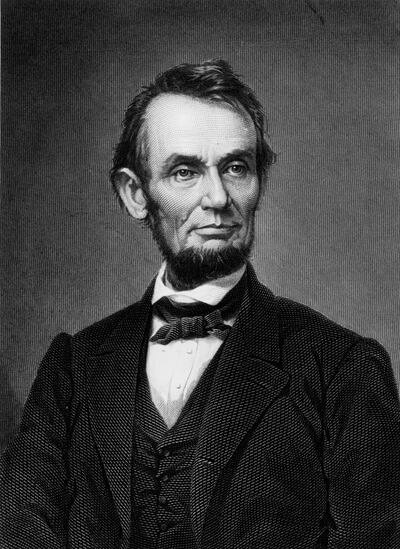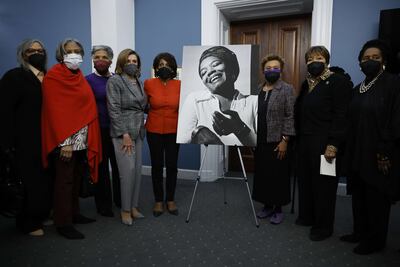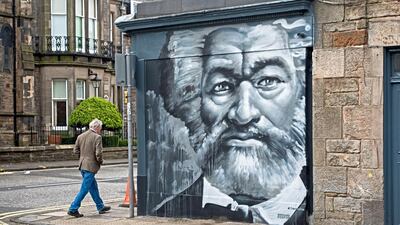Every year, for the entire month of February, the culture and contributions of African-Americans take centre stage in the US during Black History Month. From popular culture to government events and across corporate America, the heritage of black Americans is celebrated, recognising their sacrifices in shaping the country.
The month-long celebration has since expanded beyond the US, and is now observed in Canada as well as in the UK and Ireland.
In his official proclamation released ahead of the event this year, US President Joe Biden urged "public officials, educators, librarians and all the people of the US to observe this month with appropriate programmes, ceremonies and activities."
"Black culture is American culture, and black stories are essential to the ongoing story of America – our faults, our struggles, our progress and our aspirations. Shining a light on black history today is as important to understanding ourselves and growing stronger as a nation as it has ever been," Biden said.
"That is why it is essential that we take time to celebrate the immeasurable contributions of black Americans, honour the legacies and achievements of generations past, reckon with centuries of injustice, and confront those injustices that still fester today."
How did Black History Month begin?

American historian Carter G Woodson, one of the first scholars to study the history of the African diaspora, is the founder of Black History Month. Woodson, often referred to as "the father of black history", first proposed Negro History Week in 1926, envisioning a week-long celebration dedicated to the teaching of black history in public schools.
Chosen to coincide with the birthday of Abraham Lincoln – largely credited with the emancipation of slaves – and former slave and abolitionist Frederick Douglass, both of whom were born in February, the week soon gained prominence across the US and would eventually evolve into Black History Month in the 1960s.
In 1976, when the US marked the 200th year of its formation, president Gerald Ford recognised February as Black History Month.
"I urge my fellow citizens to join me in tribute to Black History Month and the message of courage and perseverance it brings to all of us," Ford said.
"In celebrating Black History Month, we can take satisfaction from this recent progress in the realisation of the ideals envisioned by our Founding Fathers. But, even more than this, we can seize the opportunity to honour the too-often neglected accomplishments of black Americans in every area of endeavour throughout our history."
In 1986, the US Congress, in a joint resolution of the House and Senate, designated the month of February as National Black History Month. A proclamation, issued by then-president Ronald Reagan, noted that “the foremost purpose of Black History Month is to make all Americans aware of this struggle for freedom and equal opportunity.”
What's the theme for Black History Month 2022?
The Association for the Study of African-American Life and History, co-founded by Woodson in 1915, designates a theme to the month every year. This year, it's Black Health and Wellness.
"Our nation has suffered through two years of a worldwide pandemic called the coronavirus or Covid-19. Almost one million Americans have died during the pandemic. African-Americans have suffered disproportionately from Covid-19 more than any other group of Americans," wrote the association's president, W Marvin Dulaney, on the non-profit's website.
"The theme of Black Health and Wellness also addresses the long history of how African-Americans have dealt with their exclusion from the nation’s hospitals and clinics. The theme not only addresses the history of healthcare in the African-American community, it is also a historical examination of the financial and economic health and wellness of African-Americans."
How is Black History Month 2022 being celebrated?
The association has planned a series of virtual events this month, including panel discussions, talks and the announcement of the winner of the annual ASALH Book Prize. There are also exhibitions organised across the US.

On Tuesday, Representative Barbara Lee hosted an event at the US Capitol to introduce the new Maya Angelou quarter dollar coin that went into circulation in January. The late poet and author is the first African-American woman to have her face on an American currency. The quarter design depicts Angelou with outstretched arms. Behind her are a bird in flight and a rising sun, images inspired by her poetry.
In entertainment, broadcaster ABC will broadcast a number of special shows including black-ish: Black History, featuring the cast of its hit Golden Globe-winning show black-ish.
Amazon Prime Video is set to debut Phat Tuesdays: The Era of Hip Hop Comedy on Friday, a three-part documentary series that looks at the evolution of black stand-up comedians in the 1990s when they were shut out of mainstream clubs, leading to the popularity of Phat Tuesdays in Los Angeles. Stars featured in the film include Anthony Anderson, Tiffany Haddish, Steve Harvey and Regina King.
From its Strong Black Lead platform that advances black stories, creators and experiences, Netflix will launch Strong Black Lens, a social media series that will highlight black creativity behind the camera, featuring black photographers and cinematographers.
On Apple TV+, the four-part documentary Lincoln’s Dilemma will look at the people and events that shaped the former president's evolving stance on slavery. Set to debut on Friday, February 18, the series will be narrated by actor Jeffrey Wright and feature the voices of Bill Camp as Abraham Lincoln and Leslie Odom Jr as Frederick Douglass. The series is adapted from historian David S Reynolds’s book Abe: Abraham Lincoln in His Times, and will also include interviews with journalists, educators and Lincoln scholars, as well as rare archival materials.

